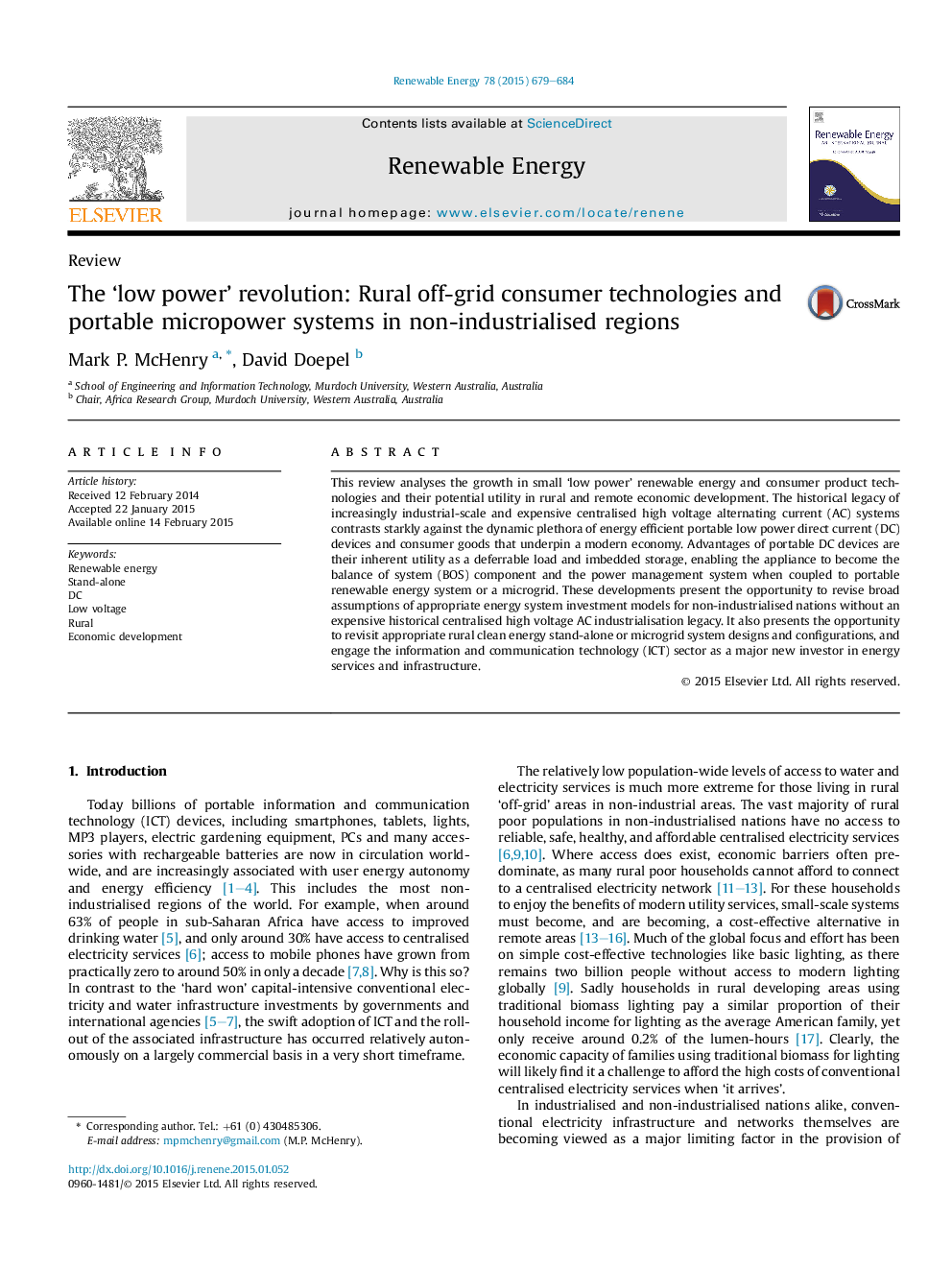| Article ID | Journal | Published Year | Pages | File Type |
|---|---|---|---|---|
| 6767063 | Renewable Energy | 2015 | 6 Pages |
Abstract
This review analyses the growth in small 'low power' renewable energy and consumer product technologies and their potential utility in rural and remote economic development. The historical legacy of increasingly industrial-scale and expensive centralised high voltage alternating current (AC) systems contrasts starkly against the dynamic plethora of energy efficient portable low power direct current (DC) devices and consumer goods that underpin a modern economy. Advantages of portable DC devices are their inherent utility as a deferrable load and imbedded storage, enabling the appliance to become the balance of system (BOS) component and the power management system when coupled to portable renewable energy system or a microgrid. These developments present the opportunity to revise broad assumptions of appropriate energy system investment models for non-industrialised nations without an expensive historical centralised high voltage AC industrialisation legacy. It also presents the opportunity to revisit appropriate rural clean energy stand-alone or microgrid system designs and configurations, and engage the information and communication technology (ICT) sector as a major new investor in energy services and infrastructure.
Related Topics
Physical Sciences and Engineering
Energy
Renewable Energy, Sustainability and the Environment
Authors
Mark P. McHenry, David Doepel,
